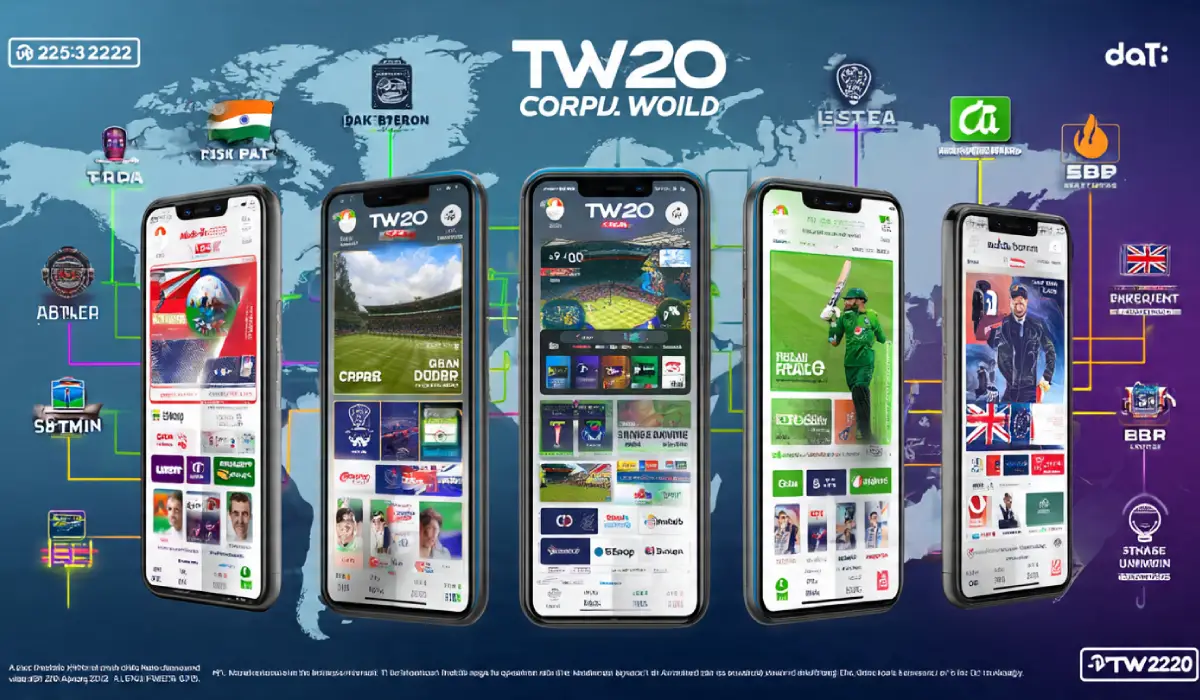Are you looking for the relevant and essential study materials and resources to excel in your Diploma in International Financial Reporting (DipIFR) examination? Your search ends here. This comprehensive guide will equip you with everything you need to know about the DipIFR qualification, from understanding the course structure to mastering effective study techniques using BPP study materials and PDF resources.
The DipIFR represents a crucial stepping stone for accounting professionals seeking to enhance their expertise in International Financial Reporting Standards (IFRS). Whether you’re a qualified accountant looking to expand your knowledge or a graduate aiming to gain specialized skills, this guide will navigate you through your journey to success.
What is the Diploma in International Financial Reporting (DipIFR) Module of ACCA
The Diploma in International Financial Reporting (DipIFR) is a specialized ACCA qualification designed specifically for accounting professionals who want to develop comprehensive knowledge of International Financial Reporting Standards. This qualification provides qualified accountants or graduates who have relevant country-specific qualifications or work experience with an up-to-date and relevant conversion course.
The qualification serves as a bridge between national accounting standards and international practices, making it particularly valuable for professionals working in multinational environments or those seeking to enhance their global career prospects.
Key Features of DipIFR
| Aspect | Details |
|---|---|
| Duration | 3-6 months average completion time |
| Study Hours | Approximately 30 hours total |
| Exam Format | Single 3-hour 15-minute computer-based exam |
| Pass Mark | 50% or above |
| Exam Sessions | June and December annually |
| Question Structure | 4 questions worth 25 marks each |
The DipIFR is assessed by a single three-hour, 15-minute computer-based exam, with candidates needing to achieve 50% or above to pass. The qualification can be completed in three to six months, taking an average of 30 hours to complete.
Target Candidates
The DipIFR is ideal for:
- Qualified accountants seeking IFRS expertise
- Finance professionals working with international standards
- Graduates with relevant accounting qualifications
- Professionals preparing for multinational career opportunities
- Those requiring IFRS knowledge for regulatory compliance
How Difficult is it to Study and Pass the DipIFR
The DipIFR examination presents moderate to high difficulty levels, requiring dedicated preparation and thorough understanding of complex accounting principles. Exam pass rates are below 40%, making it essential to use the latest study materials as missing new amendments or syllabus topics can cost valuable marks.
Difficulty Factors
Technical Complexity: The exam covers intricate IFRS standards that require both theoretical knowledge and practical application skills. Students must demonstrate proficiency across multiple accounting areas within a limited timeframe.
Application Focus: Successful candidates must demonstrate knowledge of various IFRS standards and practice questions to ensure they can articulate this knowledge while applying it to specific question scenarios. This dual requirement of knowledge retention and practical application increases the preparation challenge.
Time Management: With four 25-mark questions to complete in 3 hours and 15 minutes, effective time allocation becomes crucial for success. Students often struggle with balancing depth of answers against available time.
Success Strategies
To overcome these challenges, focus on:
- Comprehensive IFRS standard understanding
- Regular practice with past papers
- Time management during mock exams
- Professional guidance and quality study materials
Why Choose BPP for Your DipIFR Studies
BPP Learning Media stands out as the premier choice for ACCA students pursuing their DipIFR qualification. BPP Learning Media is an ACCA Approved Content Partner, with materials subject to thorough ACCA examining team review, ensuring coverage of the syllabus to the correct depth and breadth with full exam focus.
BPP’s Competitive Advantages
ACCA Partnership: BPP Learning Media has become the benchmark for quality in professional education study materials, with tutors and students worldwide recognizing them as essential support for professional qualification exam success.
Comprehensive Coverage: BPP’s Study Text provides the knowledge, understanding, skills, and application techniques required for passing the exam, with focused and comprehensive syllabus coverage that’s fully updated for technical developments.
Why Students Prefer BPP
- Proven track record in ACCA preparation materials
- Updated content reflecting latest IFRS amendments
- Structured learning approach suitable for self-study
- Quality assurance through ACCA partnership
- Student-friendly explanations of complex concepts
BPP vs. Competitors
When comparing study material providers, BPP consistently delivers superior content quality, comprehensive coverage, and better alignment with ACCA examination requirements. Their materials undergo rigorous review processes, ensuring students receive the most relevant and accurate information.
Benefits of Using PDF Study Text Materials
PDF study materials have revolutionized the way ACCA students approach their preparation, offering unprecedented flexibility and accessibility for modern learners.
Advantages of Digital Learning Resources
Portability and Accessibility: PDF materials allow you to study anywhere, anytime, without carrying heavy textbooks. Whether you’re commuting, traveling, or studying late at night, your study materials remain instantly accessible.
Search Functionality: Digital texts enable quick keyword searches, allowing you to locate specific topics, standards, or concepts within seconds rather than manually flipping through hundreds of pages.
Cost-Effective Solution: PDF materials typically cost less than printed versions while offering identical content quality, making quality education more affordable for students.
Enhanced Learning Features
- Bookmarking capabilities for important sections
- Note-taking tools for personalized annotations
- Zoom functionality for detailed diagram examination
- Cross-referencing between different chapters and standards
- Offline access once downloaded
How to Plan Your DipIFR Study Journey
Effective planning forms the foundation of successful DipIFR preparation. Your study plan should balance comprehensive coverage with practical application while accommodating your personal schedule and learning preferences.
Creating Your Study Timeline
3-Month Study Plan:
- Month 1: Foundation concepts and core IFRS standards
- Month 2: Advanced standards and practical applications
- Month 3: Revision, mock exams, and final preparation
6-Month Study Plan:
- Months 1-2: Comprehensive standard-by-standard study
- Months 3-4: Application practice and case studies
- Months 5-6: Intensive revision and exam technique refinement
Weekly Study Structure
Dedicate 8-10 hours weekly across different activities:
- Theory study: 4-5 hours
- Practice questions: 2-3 hours
- Revision: 1-2 hours
Study Planning Best Practices
Set Realistic Goals: Break down the syllabus into manageable weekly targets, ensuring steady progress without overwhelming yourself.
Mix Theory and Practice: Combine conceptual learning with practical question solving to reinforce understanding and develop application skills.
Track Progress: Maintain a study log to monitor completion rates and identify areas requiring additional attention.
Effective Preparation Strategies for the ACCA DipIFR Exam
Success in the DipIFR examination requires strategic preparation that combines theoretical mastery with practical application skills.
Core Study Techniques
Active Reading Method: Don’t just read passively through study materials. Engage with content by summarizing key points, creating mind maps, and questioning concepts as you progress.
Standard-by-Standard Approach: The syllabus and study guide for DipIFR is designed to help with planning study and provide detailed information on what could be assessed in any examination session. Structure your preparation around individual IFRS standards to ensure comprehensive coverage.
Practice-Based Learning: Regular engagement with past papers and practice questions helps develop exam technique while reinforcing theoretical concepts.
Recommended Study Resources
Primary Materials:
- BPP Study Text (latest edition)
- ACCA official syllabus and study guide
- Past examination papers
Supplementary Resources:
- Online tutorials and webinars
- Professional accounting publications
- IFRS foundation materials
Memory Enhancement Techniques
Spaced Repetition: Review previously studied standards at regular intervals to improve long-term retention.
Practical Examples: Connect theoretical concepts to real-world scenarios to enhance understanding and recall.
Group Study: Discuss complex standards with fellow students to gain different perspectives and clarify doubts.
Last-Minute DipIFR Exam Preparation Guide
When examination day approaches, your preparation strategy must shift toward consolidation and confidence building rather than learning new material.
Final Week Strategy
Revision Focus Areas:
- Key IFRS standards frequently tested
- Common examination themes and requirements
- Calculation techniques and journal entries
- Time management strategies
Day Before the Exam
Review Summary Notes: Focus on condensed notes rather than detailed study materials to avoid information overload.
Practice Time Allocation: Simulate exam conditions by practicing question distribution across the 3-hour 15-minute timeframe.
Prepare Logistics: Organize exam day essentials, confirm venue details, and ensure adequate rest.
Exam Day Success Tips
Time Management: Allocate approximately 45-50 minutes per question, leaving time for review and adjustments.
Question Selection: Read all questions carefully before starting, identifying those you feel most confident about.
Answer Structure: Use clear headings, numbered points, and logical flow to make your answers easy to follow and mark.
Understanding IFRS Standards Coverage in DipIFR
The DipIFR syllabus encompasses crucial International Financial Reporting Standards that form the backbone of global accounting practices.
Core IFRS Standards
Financial Statement Preparation:
- IAS 1: Presentation of Financial Statements
- IAS 8: Accounting Policies, Changes in Accounting Estimates and Errors
- IFRS 15: Revenue from Contracts with Customers
Asset Recognition and Measurement:
- IAS 16: Property, Plant and Equipment
- IAS 38: Intangible Assets
- IFRS 9: Financial Instruments
Complex Transactions:
- IFRS 3: Business Combinations
- IAS 12: Income Taxes
- IFRS 16: Leases
Application Requirements
Students must demonstrate ability to:
- Apply standards to practical scenarios
- Prepare financial statements under IFRS
- Explain treatment rationale for complex transactions
- Calculate adjustments required for IFRS compliance
Career Benefits of DipIFR Qualification
Earning your Diploma in International Financial Reporting opens numerous professional opportunities and enhances your accounting career prospects significantly.
Professional Advancement
Global Recognition: IFRS knowledge is highly valued by multinational corporations and international accounting firms seeking professionals who understand global reporting standards.
Salary Enhancement: Specialized IFRS expertise often commands premium salaries due to the technical nature and global applicability of these skills.
Career Mobility: The qualification facilitates career transitions between different countries and accounting frameworks, particularly valuable in today’s globalized business environment.
Industry Applications
- Multinational corporations requiring IFRS compliance
- International accounting firms serving global clients
- Financial services dealing with cross-border transactions
- Regulatory bodies overseeing financial reporting standards
- Consulting firms providing accounting advisory services
Common DipIFR Study Challenges and Solutions
Understanding potential obstacles in your DipIFR preparation helps you develop strategies to overcome them effectively.
Technical Complexity Challenge
Issue: IFRS standards contain intricate technical requirements that can overwhelm students initially.
Solution: Break down complex standards into smaller components, using practical examples to illustrate theoretical concepts.
Time Management Issues
Issue: Balancing work commitments with intensive study requirements.
Solution: Create flexible study schedules that accommodate professional responsibilities while maintaining consistent progress.
Application Difficulties
Issue: Struggling to apply theoretical knowledge to practical examination scenarios.
Solution: Increase practice question frequency and seek feedback on answer quality and approach.
Retention Problems
Issue: Forgetting previously studied material as you progress through the syllabus.
Solution: Implement regular revision cycles and create summary notes for quick reference.
Key Takeaways
- The DipIFR qualification provides essential IFRS knowledge for accounting professionals seeking international expertise
- BPP study materials offer ACCA-approved content with comprehensive syllabus coverage and proven quality
- PDF study resources provide flexible, cost-effective access to high-quality educational materials
- Effective preparation requires structured planning, combining theory study with practical application
- Success demands consistent effort over 3-6 months with approximately 30 total study hours
- Past paper practice is crucial for developing exam technique and time management skills
- The qualification enhances career prospects in international accounting and financial reporting roles
Frequently Asked Questions
What is the pass mark for DipIFR? You need to achieve 50% or above to pass the DipIFR examination.
How long does it take to complete DipIFR? Most students complete the qualification in 3-6 months with approximately 30 hours of total study time.
When are DipIFR exams held? DipIFR examinations are conducted twice annually, in June and December sessions.
Can I study DipIFR online? Yes, you can complete your DipIFR studies entirely online using digital study materials and resources.
What is the exam format for DipIFR? The exam consists of four questions worth 25 marks each, completed in 3 hours and 15 minutes via computer-based testing.
Do I need previous ACCA qualifications for DipIFR? No, but you need relevant accounting qualifications or professional experience as specified in ACCA eligibility requirements.
How difficult is the DipIFR exam? The exam presents moderate to high difficulty with pass rates below 40%, requiring thorough preparation and quality study materials.
Are BPP materials worth the investment? Yes, BPP Learning Media is an ACCA Approved Content Partner offering high-quality, exam-focused materials with proven success records.
Conclusion
The Diploma in International Financial Reporting (DipIFR) represents an invaluable qualification for accounting professionals seeking to enhance their expertise in global financial reporting standards. Through comprehensive preparation using BPP study materials and strategic study planning, you can successfully navigate this challenging yet rewarding qualification.
Your journey to DipIFR success requires dedication, proper resources, and effective study techniques. By leveraging quality PDF study materials, maintaining consistent study habits, and focusing on practical application of IFRS standards, you position yourself for examination success and enhanced career prospects.
Remember that the DipIFR qualification not only validates your technical competence but also opens doors to international career opportunities in our increasingly globalized business environment. Invest in your professional future by committing to excellence in your DipIFR preparation journey.










